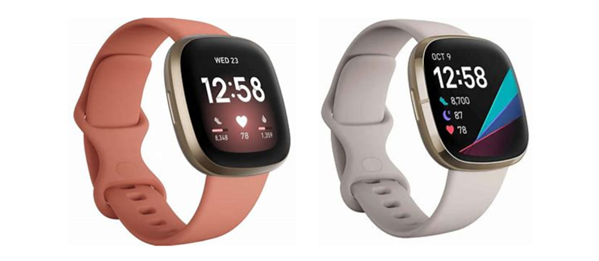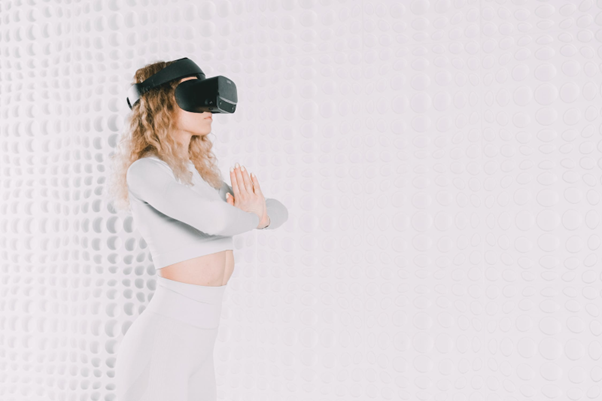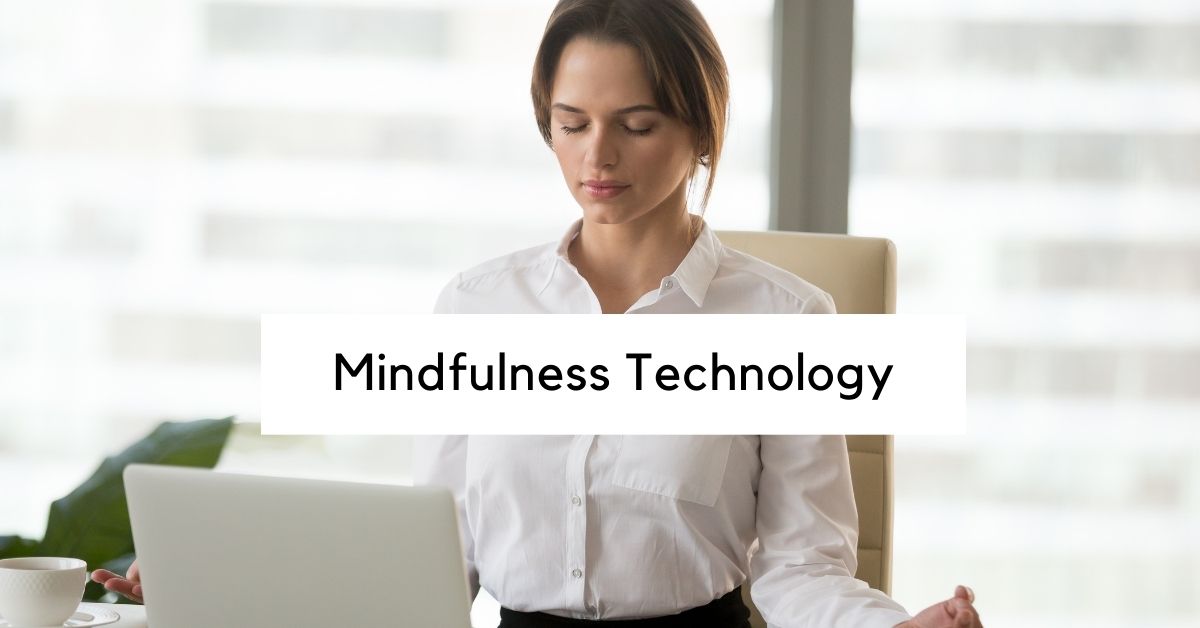How Mindfulness Technology Can Enhance Your Mental Wellness In The Digital Age
In today’s fast-paced digital world, digital mental wellness has become a pressing concern for all of us. Who wouldn’t want more peace and calm in their busy lives right? As we strive to find balance and tranquility amidst the constant noise and distractions, a new player has emerged: mindfulness tech.
What is Mindfulness Tech?
Mindfulness tech refers to the use of digital tools and applications designed to cultivate mindfulness and improve mental well-being. It encompasses a wide range of digital resources, including meditation apps, wearable devices, and online platforms dedicated to stress prevention. By leveraging technology, we can integrate mindfulness practices into our daily lives with ease.
Living in the digital age has brought numerous benefits, but it has also posed significant challenges to mental wellness. Constant connectivity, information overload, and the pressure to stay digitally engaged have taken a toll on people’s mental health. This heightened awareness of mental fitness has led us to seek out effective solutions to manage our mental health concerns.
Examples of Mindfulness Technology
Mindfulness tech comprises diverse digital resources that help individuals cultivate a sense of calm and improve their emotional well-being.
Meditation Apps
Meditation apps have revolutionized the accessibility and practice of mindfulness. With a multitude of apps available, such as Headspace and Calm, you can access guided meditation sessions anytime, anywhere. These apps provide a convenient platform for beginners and seasoned practitioners alike, enabling them to embark on their mindfulness journey at their own pace.

Wearable Devices
Wearable devices, like smartwatches and Fitbits, have integrated mindfulness features into their functionalities. They offer real-time data on heart rate, stress levels, and even guided breathing exercises. By wearing these devices, you can track your progress and receive reminders to engage in mindful activities on a daily basis.

These gadgets have gained significant popularity and has the potential to enhance your mental wellbeing.
Benefits of Mindfulness Tech in Promoting Mental Wellness
There are many advantages to using mindfulness technology to reduce stress and help you regulate your emotions. During times of busyness and hectic schedules, using these tools can significantly give you peace of mind and clarity to focus on your tasks at hand.
Accessibility and Convenience
Mindfulness tech breaks down barriers to entry by making mindfulness practices accessible to most people. With just a smartphone or wearable device, you can access guided meditation sessions anytime, regardless of your location or schedule. This convenience empowers you to prioritize your mental wellbeing in your daily life.
Stress Reduction
Mindfulness tools often have guided meditation sessions tailored to specific needs, allowing you to engage in structured practices. These sessions often focus on stress reduction, promoting relaxation, and cultivating a sense of calm. A study from the Journal of Medical Internet Research has shown mindfulness meditation apps significantly reduced symptoms of anxiety and depression among users.
Increased Self-Awareness and Emotional Regulation
Mindfulness apps and wearable devices often prompt you to check in with your thoughts, emotions, and physical sensations. A research study from the Journal of Occupational Health Psychology has shown mindfulness interventions, especially technology based, were associated with decreased stress levels and increased happiness in the workplace. These digital platforms will help with emotional development and regulation, helping you better understand and manage your responses to various situations, leading to improved mental resilience.
Improved Focus and Productivity
The digital age is synonymous with constant distractions. Mindfulness tech serves as a tool to combat this challenge by enhancing focus and productivity. Research conducted by the University of California found regular use of mindfulness tech improved your attention, cognitive flexibility and working memory. By practicing mindfulness through apps or wearable devices, you can train your mind to stay present, reduce mental clutter, and improve concentration.
How Effective is Mindfulness Tech?

You may be wondering, is there any evidence to show mindfulness tech actually works? Yes, there is.
Scientific research on has provided valuable insights into its impact on mental well-being. A randomized controlled trial published in JAMA Internal Medicine found that participants using a mindfulness meditation app experienced reduced symptoms of anxiety and depression compared to a control group. Moreover, a study published in the National Library of Medicine showed that college students who engaged with the mindfulness app “Calm” experienced a significant reduction in perceived stress levels.
While the research is promising, it is important to acknowledge controversies and limitations within the field. Studies investigating mindfulness tech often have variations in methodologies, sample sizes, and durations, making it challenging to draw definitive conclusions. Many research studies also have focused on short-term outcomes, and there is limited evidence regarding the long-term effects of mindfulness tech on mental wellness.
That is why it is crucial to understand that mindfulness tech should be viewed as a complementary tool, not a replacement for mental health treatments.
Rather it should be used alongside traditional mental health practices like therapy or counseling, enhancing their effectiveness and improving access by providing additional support. This further allows individuals to personalize their practice based on their preferences and needs, complementing the individualized nature of traditional mental health treatments.
Different individuals resonate with different mindfulness tech approaches. Some may prefer guided meditation apps, while others may find wearable devices more helpful. Exploring and finding the right fit is key to reaping the benefits.
What are the Pros of Using Mindfulness Tech?
Using these tools have numerous psychological benefits for your mental health. By giving you flexibility to choose when to use them and where, you can relax, take a breath and connect to the present moment.

User Empowerment and Self-Care
Mindfulness tech empowers users to take control of their mental well-being. It provides you with accessible tools and resources to engage in self-care practices that can be tailored to your unique needs. By incorporating this into your daily routine, you can proactively prioritize your mental wellness, fostering a sense of empowerment over your mental health journey.
Flexibility and Customization Options
More flexibility allows you to engage with practices at your convenience. Whether it’s a few minutes during a lunch break or a longer session before bed, your can customize your mindfulness practice to fit your schedule. Many mindfulness apps and devices offer a range of meditation styles, durations, and themes, enabling you to select practices that align with your preferences. This flexibility promotes a more personalized and engaging experience.
Cost-Effective Compared to Traditional Therapy
This is a more affordable alternative or supplement to traditional therapy. Many mindfulness apps and resources offer free or low-cost options, making them accessible to a broader audience. Compared to the expenses associated with in-person therapy sessions, mindfulness tech presents a cost-effective solution for people seeking mental health app support on a limited budget.
Wide Range of Options and Variety of Features
From guided meditation apps to wearable devices with mindfulness features, you have a wealth of choices. Mindfulness tech platforms often incorporates a variety of features beyond meditation, such as breathing exercises, sleep aids, and stress management tools.
Ability to Track Progress and Set Goals
Moreover, you are able to track your progress over time. This feature provides insights into one’s mindfulness journey, highlighting improvements and areas that may need attention. Setting goals within these platforms allows you to establish targets and monitor your growth. The ability to track progress and set goals fosters a sense of achievement, motivation, and continuity.
What are the Limitations of Mindfulness Tech?
While there are many advantages, mindfulness tech is still a growing field with emerging technology entering the market. It provides a well rounded guide to caring for your mental wellbeing however it should not be viewed as a one size fits all treatment.

Lack of Human Connection and Personalized Guidance
Mindfulness tech may lack the human element that is present in traditional therapy. Some individuals may prefer the support and guidance provided by a trained mental health professional, as it offers a deeper understanding of their unique circumstances. Without personalized guidance, individuals using these tools may face challenges in adapting the practice to their specific mental disorders, potentially limiting its effectiveness in addressing their mental health concerns.
Potential for Misuse or Over Reliance
It is important to exercise caution and avoid over reliance as the sole solution for mental wellness. Relying solely on technology without seeking professional assistance or engaging in other forms of self-care can hinder your holistic well-being. Misusing it like a distraction or escape from underlying mental illness issues, may provide temporary relief but can prevent you from addressing the root cause of your emotional issues.
Inconsistencies in Quality and Reliability of Mindfulness Tech Products
The wide range of these products available on the market means there can be inconsistencies in their quality and reliability. Some apps or devices may lack scientific validation, accurate information, or evidence-based approaches, potentially diluting their effectiveness. You should exercise discretion when selecting these products, ensuring they are backed by reputable sources, research, and positive user reviews.
Risk of Distraction and Increased Screen Time
Mindfulness tech, which often operates through smartphone apps or devices, can inadvertently contribute to increased screen time. This can lead to potential distractions and the reinforcement of digital dependency, which may counteract the intended benefits of mindfulness practice. It is important for you to establish healthy boundaries and balance your use with offline activities and real-world connections to maintain a well-rounded approach to build resilience.
Not Suitable for Severe Mental Health Problems
While mindfulness tech can be helpful for individuals experiencing mild to moderate mental health concerns, it is not a substitute for professional treatment for patients with severe mental health conditions. Instead you should seek guidance from mental health professionals who can provide appropriate interventions. Rather it should be seen as a complementary tool to existing treatments, and you should consult with your healthcare provider to determine the best approach for your specific needs.
How to Most Effectively Use Mindfulness Tech to Improve Your Mental Wellness

There are many strategies to use mindfulness tech effectively to get the most benefit in your daily life.
Establish healthy boundaries helps you avoid excessive screen time and prevent distractions. Allocate dedicated periods for engagement while ensuring a balanced lifestyle that includes offline activities and social connections. Consistency is also key in mindfulness practice. Set aside dedicated time each day or week to engage with mindfulness tech to reap the long-term benefits of mental wellness.
Integration of Mindfulness Tech with Other Mental Health Practices
Incorporate mindfulness tech as a supplement to other mental health services, such as therapy or counseling. It can enhance the effectiveness of these practices by providing additional tools for self-reflection, self-care, and mental health support. Being able to combine this with other holistic self-care activities, such as physical exercise, healthy sleep habits, and nurturing relationships.
The Importance of Seeking Professional Guidance When Needed
Mindfulness tech is not a substitute for professional mental health treatment. If you’re experiencing severe mental health conditions or significant distress, it is crucial to seek guidance from trained mental health professionals who can provide appropriate interventions and support. Furthermore, health care professionals and coaches can offer personalized guidance based on an individual’s unique circumstances, tailoring the treatment approach to address your individual challenges.
Mindfulness Tech as a Supplement, not a Substitute, for Human Connection
While mindfulness tech provides accessibility and convenience, it cannot replace the benefits of strong relationships. Seek opportunities for real-world connections, social and peer support, and engaging in face-to-face interactions to foster emotional well-being. These apps and devices should support and enhance interpersonal connections rather than replacing them.
Final Thoughts
Mindfulness tech is an ever growing field as mental health becomes less stigmatized in the 21st century which makes finding a balance in using these tools essential for optimal mental wellbeing. There are both pros and cons to using this technology such as flexibility, variety of options and accessibility. Remember, it is a tool to supplement and enhance our overall mental health journey, but it should never replace the importance of human interaction and professional support.






